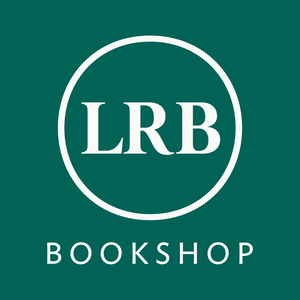
Between The Covers : Conversations with Writers in Fiction, Nonfiction & Poetry
David Naimon, Tin House Books
David Naimon, Tin House Books
- 2 hours 10 minutesAria Aber : Good Girl
Poet Aria Aber’s debut novel Good Girl , set in the club scene of Berlin, is a book brimming over with sex and drugs and music, true. But really at its heart it is a book of self-making and unmaking, of self-destruction and self-discovery, where 19 year old Nila navigates the irresolvable dialectics of being a second generation Afghan-German immigrant, finding home neither in the world of her family nor in Germany at large. A book coursing with desire and shame, flight and pursuit, Good Girl is ultimately about the desperate need to find oneself and one’s home, whatever the cost. Where home might not be a place or a people at all, but the world of art and literature itself.
For the bonus audio archive Aria contributes a reading from Palestinian writer Yasmin Zaher’s debut novel, The Coin. This joins Isabella Hammad reading from Walid Daqqa’s prison writings, Zahid Rafiq reading Kafka, Rabih Alameddine reading Fernando Pessoa, Dionne Brand reading Christina Sharpe and much more. To learn how to subscribe to the bonus audio and the other potential benefits and rewards available when you join the Between the Covers community as a listener-supporter, head over to the show’s Patreon page.
Finally, here is the BookShop for today’s conversation.
The post Aria Aber : Good Girl appeared first on Tin House.
14 January 2025, 5:37 pm - 2 hours 4 minutesZahid Rafiq : The World With Its Mouth Open
Today’s guest Zahid Rafiq discusses his debut short story collection The World With Its Mouth Open, eleven remarkable stories set in modern-day Kashmir. Prior to writing fiction Rafiq was a journalist and we explore the ways the stories he tells now, and the stories he wrote then, differ and overlap, We look at how fiction can contain the unsaid, the unknown even; how it can create space for silence, and, unlike journalism, tell the stories behind the stories. We explore the relationship of art and politics, especially when writing stories about ordinary lives and ordinary days, stories often described as quiet and understated, when they are, at the same time, set in one of the most contested and militarized places on earth.
For the bonus audio archive Zahid contributes a reading from the writings of one of the most important writers for him, Franz Kafka. He reads from the chapter “Waiting for Klamm” from his novel The Castle. To learn how to subscribe to the bonus audio archive and about all the other potential rewards and benefits of joining the Between the Covers community as a listener-supporter head over to the show’s Patreon page.
Finally, here is the BookShop for today’s conversation.
The post Zahid Rafiq : The World With Its Mouth Open appeared first on Tin House.
1 January 2025, 9:57 pm - 1 hour 10 minutesTin House Live : Denis Johnson : 2004
We started 2024 with an archival recording of Denis Johnson from the first ever Tin House Writers Workshop in 2003. That episode was a three-part episode: Denis Johnson reading from the manuscript of his novella Train Dreams, then being interviewed by Chris Offutt, and finally, Denis, Chris and Charles D’Ambrosio performing the first act of his play Psychos Never Dream. It turns out Denis returned to the Tin House workshop the following year, the summer of 2004. It seems a fitting way to round out the year to have the last episode of 2024 be an archival recording of his return. This episode is a two-part episode. The first half is a reading from the manuscript of what would become his National Book Award-winning novel Tree of Smoke. The second half is an extended interview of Denis by Charles D’Ambrosio. A deep dive into Johnson’s process and philosophy, and into questions of craft and influence.
If you enjoy today’s episode, consider joining the Between the Covers community as a listener-supporter. You can find out about all the potential rewards and benefits of doing so at the show’s Patreon page.
The post Tin House Live : Denis Johnson : 2004 appeared first on Tin House.
24 December 2024, 8:22 pm - 1 hour 57 minutesRodrigo Fresán : Melvill
How can a novel set during one brief moment near the end of Herman Melville’s father’s life, a moment lost to history and now fully overshadowed by his son’s enduring literary legacy, become a portal to discuss the world entire? Melvill is a novel about reading and writing, about parenthood and legacy, about madness and memory, about time and ghosts and the dead who never die. Jorge Luis Borges once called Moby Dick an “infinite novel,” one that “page by page, expands and even exceeds the size of the cosmos.” And today’s conversation with Rodrigo Fresán seems animated by this very spirit. Somehow a conversation about Herman Melville’s father not only becomes a deep meditation on Moby Dick but also, at the very same time, at the very same moment, a meditation on Argentinian literature, on imagination and place, on style and plot, on vampires and footnotes, on Borges, Bolaño, Bob Dylan, Vladimir Nabokov, and on and on into the infinite cosmos.
For those subscribed to the bonus audio archive, today’s contribution is a long-form conversation with Melvill‘s translator Will Vanderhyden. We explore Will and Rodrigo’s ongoing collaboration and friendship, the challenges and joys of translating Rodrigo’s work and Will’s own journey as a translator. To learn more about the bonus audio and the other potential benefits of joining the Between the Covers community as a listener-supporter head over to the show’s Patreon page.
Finally here is the Bookshop for today’s episode.
The post Rodrigo Fresán : Melvill appeared first on Tin House.
9 December 2024, 6:26 am - 2 hours 11 minutesDionne Brand : Salvage : Readings from the Wreck
What does it mean that a life can not only be animated by books but destroyed by them? That a self can be not only made by reading, but unmade by it? Dionne Brand’s latest book of nonfiction Salvage: Readings from the Wreck returns to formative texts from her own reading life in order to model a more aware and liberatory way of reading, of thinking, of being, in relation to them. We explore what we can salvage from the wreck, the wreck that is the book before us, the wreck that is us before the book.
For the bonus audio archive Dionne reads selections from the work of Canisia Lubrin and Christina Sharpe. This joins readings, craft talks, writing prompts and more from everyone from Danez Smith to Marlon James to Nikky Finney. You can find out how to subscribe to the bonus audio and about all the other potential benefits and rewards of joining the Between the Covers community as a listener-support at the show’s Patreon page.
Finally here is the BookShop for today.
The post Dionne Brand : Salvage : Readings from the Wreck appeared first on Tin House.
25 November 2024, 7:32 pm - 2 hours 53 minutesDanez Smith : Bluff
Danez Smith’s poetry is so many things, a poetry of resistance, of elegy, of joy, of care, of repair. Their poetry is Afrofuturist and Afropessimist. It’s nature poetry, decolonial poetry, queer poetry, a poetry that is archival and documentary. And it is also a poetry that questions poetry itself and even more so, questions the poet, a poetry that is continually in the process of self-remaking and unmaking, of forging and severing allegiances, a shapeshifting poetry, a poetry of mutual aid, a poetry reaching toward, and already singing from, an elsewhere and an otherwise. Nam Le for the New Your Times, speaking of Smith’s new book Bluff, doesn’t just suggest that this book is a major turning point for the poet, a volta within this poet’s evolution, but also suggests that Danez’s volta might also represent a turning point for American poetry at large. This twinning, of the self that is Danez to the poetry collective, feels prescient, as their poetry contains so much, and so much powerful self-examination, that it becomes an examination of all of us, for all of us, of what it means to be an “I” and what it means to be a “we.” Who better to lead us through than a poet like this?
For the bonus audio archive, Danez contributes something really special for us. As one of the six members of the Dark Noise Collective (along with Fatimah Asghar, Aaron Samuels, Franny Choi, Nate Marshall, and Jamila Woods), Danez reads a favorite poem from each of their five peers and follows each reading with a writing prompt designed for us and related to the poem just read. After five poems and five writing prompts, Danez reads a poem of their own too. This joins an ever-growing archive of supplemental material from Ross Gay reading Jean Valentine to Dionne Brand reading Christina Sharpe to Nikky Finney reading from the diaries of Lorraine Hansberry. To learn how to subscribe to the bonus audio and about all the other possible benefits of joining the Between the Covers community as a listener-supporter head over to the show’s Patreon page.
Finally, here is the BookShop for today.
The post Danez Smith : Bluff appeared first on Tin House.
8 November 2024, 8:01 pm - 2 hours 33 minutesKenzie Allen : Cloud Missives
Today’s conversation with Kenzie Allen, about her debut poetry collection Cloud Missives, is unusually wide-ranging. We look at the influence of archaeology, anthropology and cartography on her poetry, and on her notion of gaze within her work. We explore the fraught colonial history of these fields, and how, as an indigenous poet, she orients herself to her own work in this regard. We look at questions of identity, representation and stereotype both in the realm of language and art-making, and also in the realm of tribal sovereignty, looking at the colonial history of blood quantum and its repercussions today. We also look at questions of form, both inherited forms and the creation of new ones, of both poetry on the page, and multimodal works that live off of it, from visual poetry to literary cartography to the wampum belt as an ancient form of hyper-text.
For the bonus audio archive, Kenzie contributes an extended reading of a sequence poem that she calls Love Songs to Banish Another Love Song. By reading this, she gives us a peek behind the curtain of the process of revision, because this sequence is an earlier, very different version of a much shorter poem in Cloud Missives. This joins many other supplemental readings in the archive from everyone from Jake Skeets to Layli Long Soldier, Elissa Washuta to Natalie Diaz, Brandon Hobson to Tommy Pico to Terese Marie Mailhot. You can find out how to subscribe and check out the many other possible benefits and rewards of joining the Between the Covers community as a listener-supporter at the show’s Patreon page.
Finally, here is the BookShop for today.
The post Kenzie Allen : Cloud Missives appeared first on Tin House.
24 October 2024, 6:35 pm - 45 minutes 45 secondsTin House Live : Torrey Peters on Strategic Opacity
Today’s craft talk—by Torrey Peters on “Strategic Opacity”— was recorded at the 2024 Tin House summer writers workshop. Peters explores the elements in works of fiction that actually don’t make sense—from William Shakespeare to Elena Ferrante —and how, paradoxically, it is these very elements, the unexplainable ones, that can make a work of art great. Given that most actual humans make nonsensical choices and can’t be fully known as people, Peters discusses how we might write lifelike characters who don’t make sense either—but in a strategic way—writing them so that they begin to feel like the real people all around us: “the friends who make strange and frustrating decisions in their worst interests, the parents who act with sudden arbitrariness, the lovers who just won’t accept the care they need and want.” Peters then looks at the ways this revelation has deeply changed her own work.
If you enjoy today’s conversation consider joining the Between the Covers community as a listener-supporter. Head over to the show’s Patreon page to learn more.
Finally, here is the BookShop for today’s talk, which includes many of the books mentioned.
The post Tin House Live : Torrey Peters on Strategic Opacity appeared first on Tin House.
11 October 2024, 7:05 pm - Jewish Currents Live : Dionne Brand & Adania Shibli in Conversation
As part of Jewish Currents Live: A Day of Politics & Culture, I moderated a conversation between Adania Shibli and Dionne Brand this September in New York City. Both Dionne and Adania have been on the show individually, and part of why I was hoping to bring them together this way was because of just how unforgettable my conversations with each of them respectively were. Together we look at questions of home and belonging, nations and mapping, humans and animals, as well as at Dionne and Adania’s shared desire to write against grand narratives and to imagine an otherwise for how we might live together. We do all of this within the aura of the eleven months of genocidal assaults on Palestinian life, and how the resistance to it connects us to other struggles around the world.
Jewish Currents is offering two things to entice listeners to become supporters of Between the Covers, one is a Jewish Currents sampler of back issues, the other is their After October 7th compendium of essays, poems and reports with writings by genocide scholar Raz Segal, Peter Beinart’s essay “Teshuvah: A Jewish Case for Palestinian Refugee Return,” poems by Hala Alyan, Fady Joudah and more. To learn about these and the many other things available to choose from when joining the Between the Covers community, head over to the show’s Patreon page.
Finally, here is the BookShop for today.
The post Jewish Currents Live : Dionne Brand & Adania Shibli in Conversation appeared first on Tin House.
2 October 2024, 1:19 pm - 1 hour 56 minutesIsabella Hammad : Recognizing the Stranger : On Palestine and Narrative
Today’s conversation with Isabella Hammad is truly like no other on the show in its fourteen year history. The main text of her book is the speech she delivered for the Edward Said Memorial Lecture in September of 2023. A remarkable speech called “Recognizing the Stranger” which looks at the middle of narratives, at turning points, recognition scenes and epiphanies; which explores the intersection of aesthetics and ethics, words and actions, and the role of the writer in the political sphere; and which complicates the relationship between self and other, the familiar and the stranger. It does all of this in the spirit of Said’s humanistic vision, reaching for narrative forms that can best reflect Palestinian lived experiences. Hammad delivered this speech, however, nine days before October 7th. The response of Israel, and the West at large, prompted her to write an afterword, an afterword that is a third of the book entire. Hammad herself had had her own turning point, her own recognition scene, where the terms of her own analysis had irrevocably changed. The afterword reflects this change, sitting at a right angle to the speech itself. The book as a whole captures this turning point within a writer in real time, preserving the gap between two selves, and we explore both on their own terms.
If you enjoyed today’s conversation, consider joining the Between the Covers community as a listener-supporter. One possible supporter benefit to choose from is access to the bonus audio archive. Isabella Hammad has contributed an extended reading from writer and political prisoner Walid Daqqa’s letter “Parallel Time.” This letter hasn’t been published in English but it was, in 2014, adapted to the stage in Haifa under the same name. The Israeli culture ministry, in response, defunded the theater. To learn how to subscribe to the bonus audio, and about the many other possible rewards to choose from, head over to the show’s Patreon page.
Finally here is today’s BookShop.
The post Isabella Hammad : Recognizing the Stranger : On Palestine and Narrative appeared first on Tin House.
24 September 2024, 2:00 pm - 1 hour 10 minutesTin House Live : Frank Bidart
Today’s episode is an archival recording of poet Frank Bidart from the 2008 Tin House Writers Workshop. It begins with an introduction by the poet Brenda Shaughnessy, followed by an extended poetry reading by Frank Bidart. After the reading is a not-to-be-missed substantive and remarkable craft interview of Frank by Brenda. They look at how he approaches revision, the ways teaching students influences his own writing, and about his early years as a student of, and ultimately friend and early reader for, Robert Lowell.
If you enjoyed today’s conversation, consider joining the Between the Covers community as a listener supporter. One possible benefit to choose from is the ever-growing bonus audio archive which includes a reading of and meditation on a Frank Bidart poem by Garth Greenwell. To learn more head over to the show’s Patreon page.
You can also find a playlist of past conversations with some of the most iconic poets writing today, from Layli Long Soldier to Jorie Graham, Carl Phillips to Dionne Brand, at the show’s YouTube Channel.
Finally here is the BookShop for today’s episode.
The post Tin House Live : Frank Bidart appeared first on Tin House.
6 September 2024, 6:44 pm - More Episodes? Get the App
Your feedback is valuable to us. Should you encounter any bugs, glitches, lack of functionality or other problems, please email us on [email protected] or join Moon.FM Telegram Group where you can talk directly to the dev team who are happy to answer any queries.
 The Paris Review
The Paris Review
 Poetry Off the Shelf
Poetry Off the Shelf
 The Critic and Her Publics
The Critic and Her Publics
 Otherppl with Brad Listi
Otherppl with Brad Listi
 London Review Bookshop Podcast
London Review Bookshop Podcast
 The New Yorker: Poetry
The New Yorker: Poetry